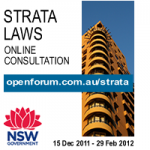Fighting fake news on Twitter

Prompting people to reflect on the accuracy of news headlines increases the quality of news that they share online, according to a study published online in Nature this week. The research, which includes a field experiment on Twitter, suggests that social media platforms could remind users to check the accuracy of information to improve the quality of news circulating online.
To understand why people share misinformation on social media and how to reduce this behaviour, Gordon Pennycook and colleagues performed a number of survey experiments in which individuals were asked to rate the accuracy of news and whether they would share it.
In the initial experiments, groups were presented with real news stories (half of which were untrue) and were asked to either judge the accuracy of the headline or indicate whether they would consider sharing the headlines.
True headlines were rated as accurate more often than false headlines; however, individuals were twice as likely to consider sharing false but politically concordant headlines than they were to rate such headlines as accurate.
Despite these results, most participants stated that it was extremely important to share only accurate information on social media, which indicates that some people may not intentionally spread misinformation.
Subsequent experiments demonstrated that, when prompted to consider the accuracy of headlines, people shared fewer false news stories. The authors suggest that the sharing of false information may be due to inattention.
In a field experiment involving 5,379 Twitter users they found that when individuals were sent a private message asking them to rate the accuracy of a single news headline, the accuracy and quality of the news sources shared improved.
The current design of social media platforms — in which a wide variety of content is available and users receive rapid social feedback on their sharing — may be distracting people from considering accuracy, the authors propose.
They conclude that adding periodic reminders to users to rate the accuracy of information could potentially reduce the spread of misinformation online.
Open Forum is a policy discussion website produced by Global Access Partners – Australia’s Institute for Active Policy. We welcome contributions and invite you to submit a blog to the editor and follow us on Twitter, Facebook, Linkedin and Mastadon.











